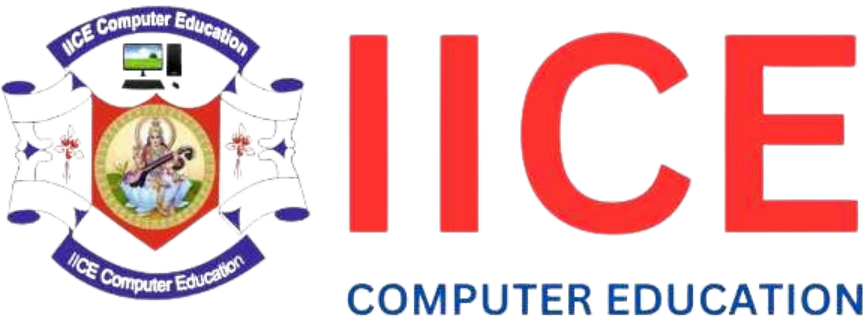Full Stack Web Development Course
Original price was: ₹15,000.00.₹9,999.00Current price is: ₹9,999.00.
A Full Stack Web Development course at IICE Computer Education involves blending foundational concepts with cutting-edge technologies and practical hands-on experience. Here’s a suggested outline along with some unique content ideas:
- Introduction to Full Stack Web Development
- Overview of full stack development
- Role of full stack developers in the industry
- Introduction to front end, back end, and database technologies
- HTML, CSS, and Front End Development
- HTML5 and semantic markup.
- CSS3 and modern layout techniques (Flexbox, Grid)
- Responsive web design principles and frameworks like Bootstrap or Tailwind CSS.
- JavaScript and Front End Frameworks
- Fundamentals of JavaScript programming
- Introduction to popular front end frameworks like React, Angular, or Vue.js
- Building dynamic and interactive user interfaces
- Server-side Programming with Node.js
- Introduction to Node.js and the event-driven architecture
- Building web servers and APIs with Express.js
- Asynchronous programming and handling requests
- Database Management
- Relational database fundamentals (SQL)
- NoSQL databases like MongoDB or Firebase
- CRUD operations and database integration with web applications
- Authentication and Authorization
- User authentication using JWT (JSON Web Tokens) or OAuth
- Role-based access control (RBAC)
- Security best practices for protecting user data
- RESTful APIs and Microservices
- Designing and implementing RESTful APIs
- Microservices architecture and scalability
- API documentation using tools like Swagger or Postman
- Version Control with Git
- Git basics: branching, merging, and resolving conflicts
- Collaborative development workflows with GitHub or GitLab
- Deploying web applications using Git-based workflows
- Testing and Debugging
- Writing unit tests and integration tests
- Debugging techniques for front end and back end code
- Test automation and continuous integration (CI) pipelines
- Containerization and Deployment
- Introduction to Docker containers
- Container orchestration with Kubernetes
- Deploying web applications to cloud platforms like AWS or Heroku
- Performance Optimization and Monitoring
- Optimizing front end performance (minification, lazy loading)
- Monitoring server performance and logging
- Diagnosing and fixing performance bottlenecks
- Advanced Topics in Full Stack Development
- Serverless computing and Function as a Service (FaaS)
- Real-time web applications with WebSockets or Socket.IO
- Progressive Web Apps (PWAs) and offline functionality.
Description
A Full Stack Web Development course at IICE Computer Education involves blending foundational concepts with cutting-edge technologies and practical hands-on experience. Here’s a suggested outline along with some unique content ideas:
- Introduction to Full Stack Web Development
- Overview of full stack development
- Role of full stack developers in the industry
- Introduction to front end, back end, and database technologies
- HTML, CSS, and Front End Development
- HTML5 and semantic markup.
- CSS3 and modern layout techniques (Flexbox, Grid)
- Responsive web design principles and frameworks like Bootstrap or Tailwind CSS.
- JavaScript and Front End Frameworks
- Fundamentals of JavaScript programming
- Introduction to popular front end frameworks like React, Angular, or Vue.js
- Building dynamic and interactive user interfaces
- Server-side Programming with Node.js
- Introduction to Node.js and the event-driven architecture
- Building web servers and APIs with Express.js
- Asynchronous programming and handling requests
- Database Management
- Relational database fundamentals (SQL)
- NoSQL databases like MongoDB or Firebase
- CRUD operations and database integration with web applications
- Authentication and Authorization
- User authentication using JWT (JSON Web Tokens) or OAuth
- Role-based access control (RBAC)
- Security best practices for protecting user data
- RESTful APIs and Microservices
- Designing and implementing RESTful APIs
- Microservices architecture and scalability
- API documentation using tools like Swagger or Postman
- Version Control with Git
- Git basics: branching, merging, and resolving conflicts
- Collaborative development workflows with GitHub or GitLab
- Deploying web applications using Git-based workflows
- Testing and Debugging
- Writing unit tests and integration tests
- Debugging techniques for front end and back end code
- Test automation and continuous integration (CI) pipelines
- Containerization and Deployment
- Introduction to Docker containers
- Container orchestration with Kubernetes
- Deploying web applications to cloud platforms like AWS or Heroku
- Performance Optimization and Monitoring
- Optimizing front end performance (minification, lazy loading)
- Monitoring server performance and logging
- Diagnosing and fixing performance bottlenecks
- Advanced Topics in Full Stack Development
- Serverless computing and Function as a Service (FaaS)
- Real-time web applications with WebSockets or Socket.IO
- Progressive Web Apps (PWAs) and offline functionality.
leo.






Cobus Bester –
Wonderful collection of WooThemes classics! A must buy for all Woo fans.